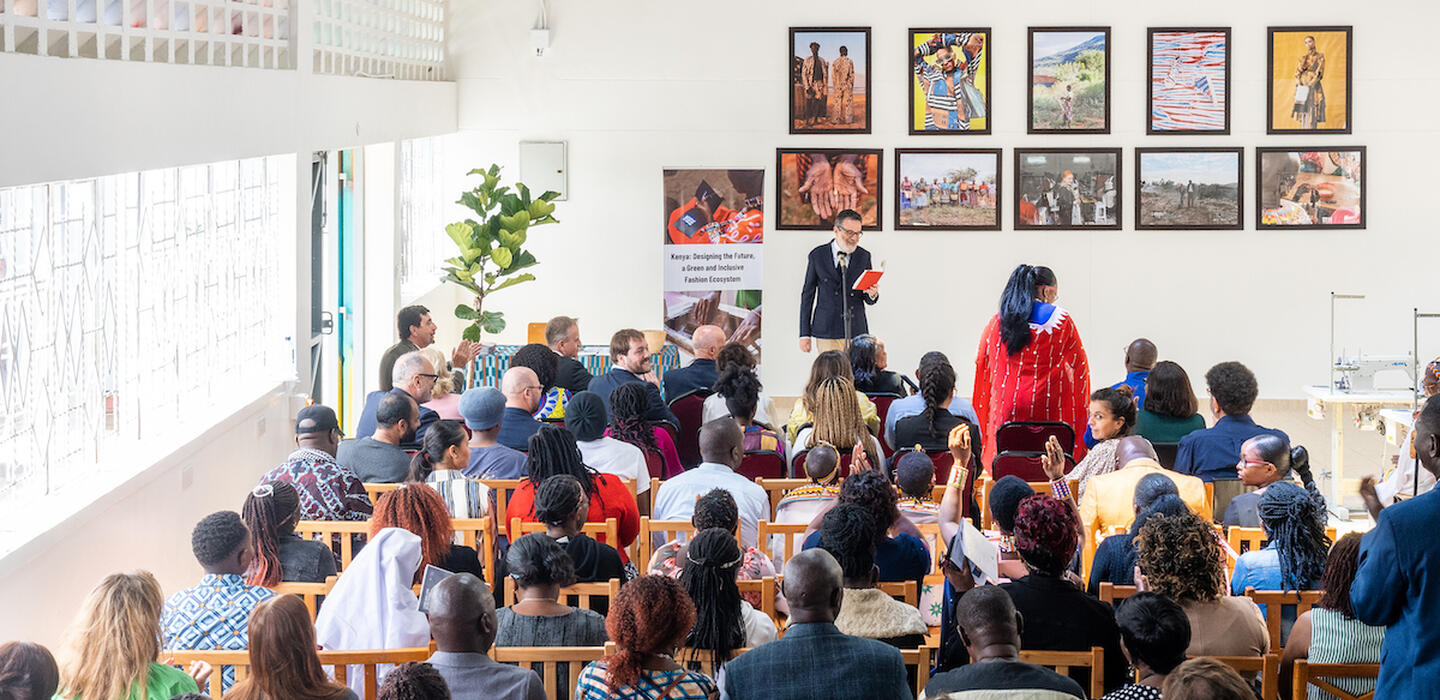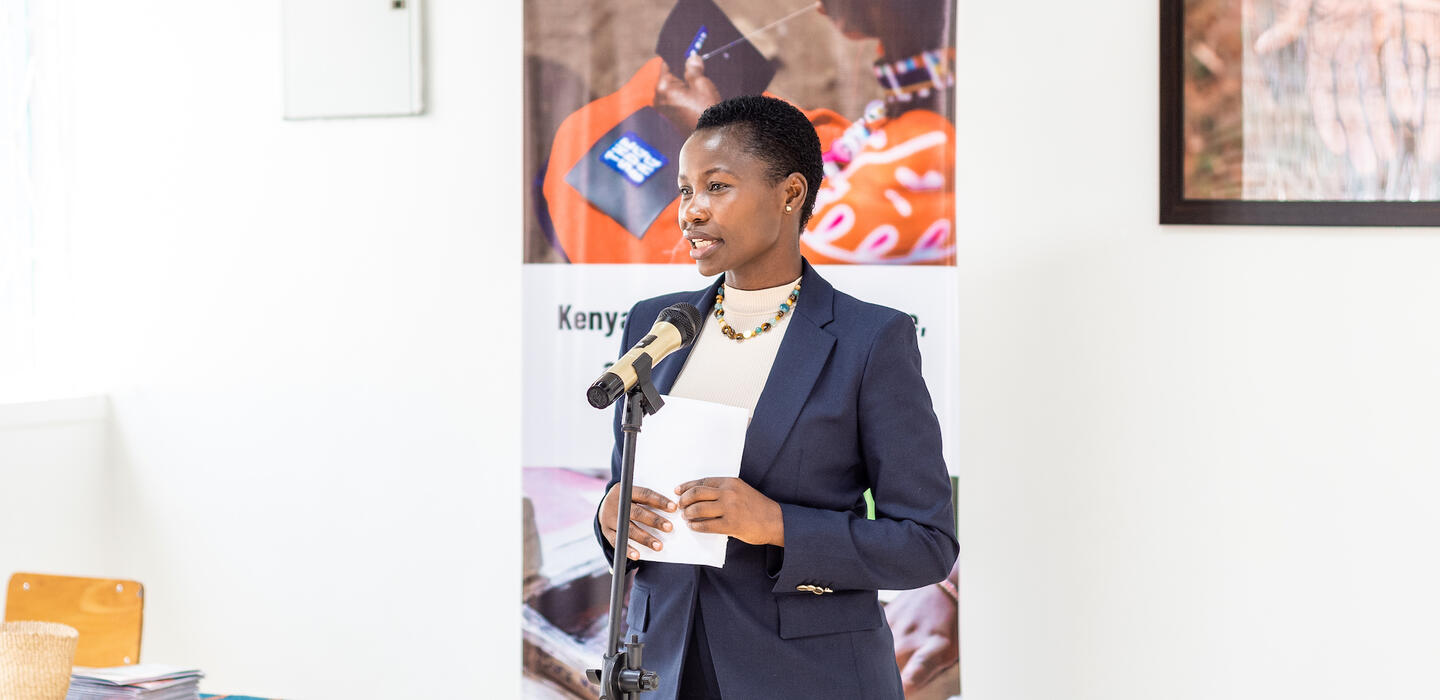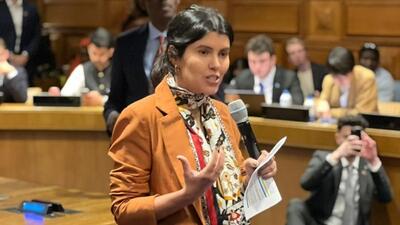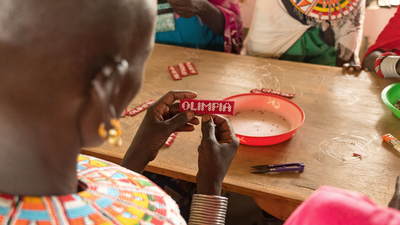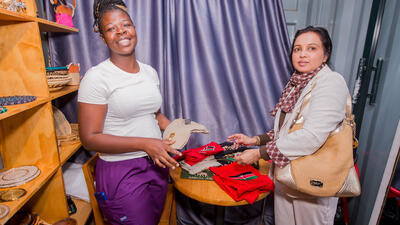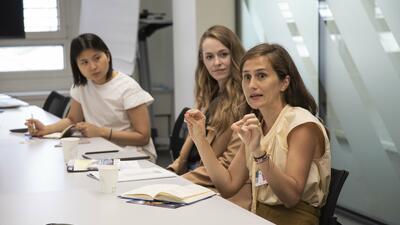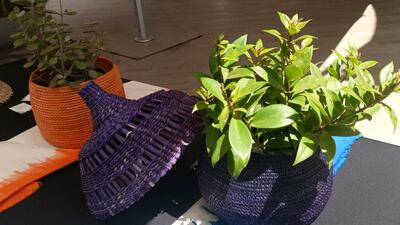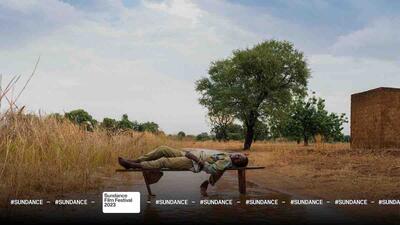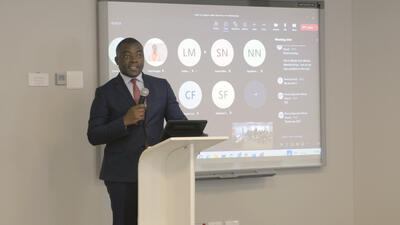
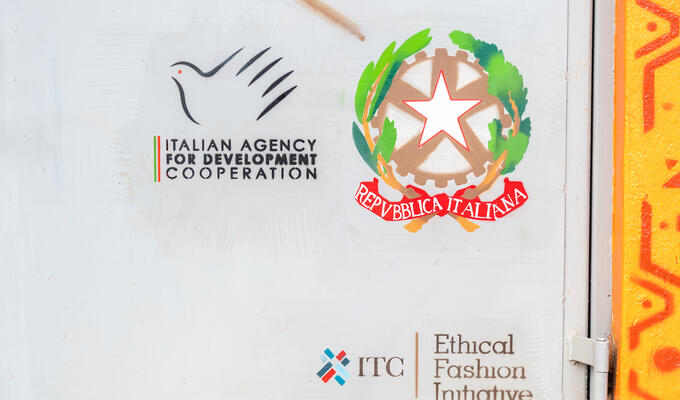
2,500 Kenyan fashion creators poised to enter global markets
The artisans, micro-producers, and design entrepreneurs will undergo training so they can tap into the network of luxury global brands that work with the Ethical Fashion Initiative (EFI).
As a flagship programme of the International Trade Centre (ITC), EFI’s business model has 15 years of success in bringing sustainable, quality fashion products onto the global stage.
The programme encourages circular design and production, so that creators make durable, reusable products with the goal of generating zero waste.
Some 2,500 people from marginalized communities throughout Kenya are expected to receive specialized training, improved working conditions and increased access to the market, with prominent international fashion firms.
EFI launched the new three-year project on 17 April with the Embassy of Italy in Kenya and the Nairobi office of the Italian Agency for Development Cooperation (AICS). The Italian Government is funding the project to foster sustainable fashion production and job creation in Kenya.
The launch took place at the project’s main incubation hub, the Don Bosco Training Centre in Nairobi. The event was attended by:
- Susan Mang’eni, Principal Secretary in the State Department of Micro, Small and Medium Enterprises (MSME) Development
- Mercy Wanjau, Secretary to the Cabinet of the Republic of Kenya
- Roberto Natali, Ambassador of Italy
- Giovanni Grandi, Head of the AICS Regional Office in Nairobi
- Stephen Jackson, the United Nations Resident Coordinator for Kenya
- Alex Musembi, co-founder of Africa Collect Textiles
- Lilian Kahiro, Director of Ushinde
‘By empowering artisans, micro-producers, and entrepreneurs, our aim is to pave the way for inclusive and sustainable economic growth,’ said Grandi, head of AICS Nairobi. ‘Employment and business creation stand as cornerstones of the Italian Cooperation’s commitment in Kenya, and through this initiative we aim at harnessing the potential offered by the incredible entrepreneurial drive of the Kenya population and of its young population.’
‘Kenyan artisans are already world-class creatives. What they sometimes still lack is access to the markets and systems at the international level that will allow them to take their production to the next level,’ said Jackson. ‘This ITC initiative will provide that, marrying local and international expertise for a win-win situation in the fast-moving world of global fashion.’
Kenya’s economic growth depends on working with small businesses, especially those employing women and youth, Mang’eni said. These efforts enable them to improve their competitiveness in domestic, regional and global trade, she added.
‘I am delighted the Ethical Fashion Initiative, which has a solid track record in supporting MSME’s from the fashion value chain, is launching this project in Kenya, creating new employment opportunities and shining a light on our homegrown creative and productive capacities,’ she said.
About the project
The project seeks to leverage EFI’s experience in managing fashion supply chains in Kenya to contribute to climate resilient growth and to a more inclusive society. The newly launched project will target 2,500 artisans, micro-producers and design entrepreneurs—primarily women and youth — from marginalized communities throughout the country. Project beneficiaries will receive a specialized curriculum of training and capacity building, increasing their ability to work directly with leading international fashion firms, thereby creating long-term, dignified employment in Kenya. The project also focuses on scaling up the environmental sustainability of the processes and practices used by Kenyan artisans, and which are increasingly demanded by global consumers. This will entail promoting circular design and production, use of renewable sources of energy, use of organic and/or recycled materials, and other processes that require carbon-insetting. The project will follow EFI’s “Due Diligence, Performance Monitoring and Corporate Sustainability Reporting framework,” which ensures socially responsible business conduct throughout its operations.





